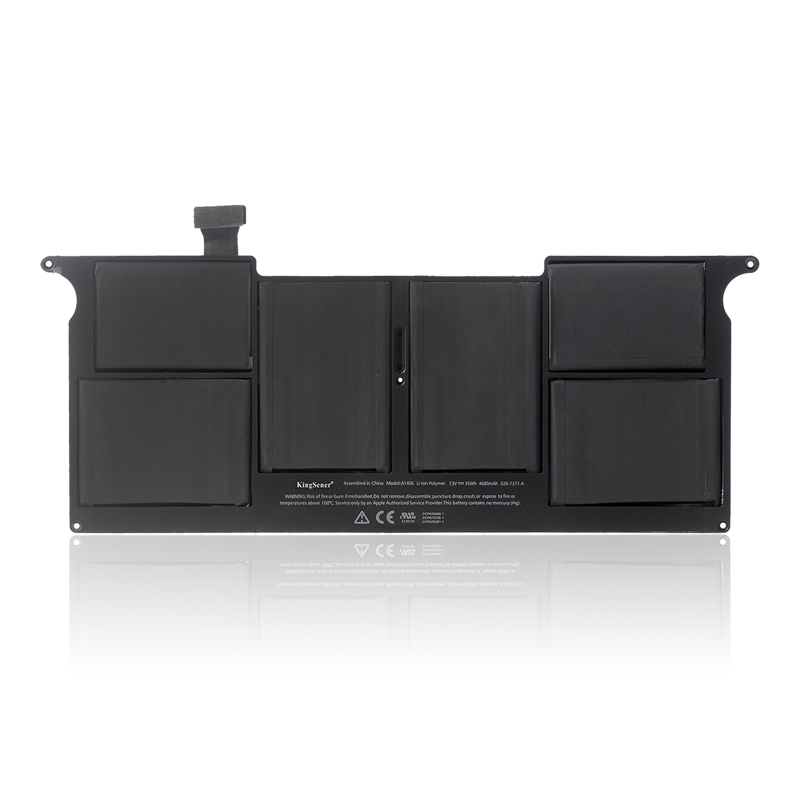Have you ever noticed that the back cover of your laptop computer, which has been used for two or three years, is getting harder and harder to close, the touchpad is becoming uneven, and even the keyboard is bulging? When you take it apart, you will find that the battery has swelled like a small loaf of bread!
Battery bulging (also known as “battery swelling”) not only affects the appearance of the computer but may also squeeze the internal components, causing deformation of the motherboard, damage to the screen, and even the risk of fire. So, why does the laptop battery bulge? How to avoid this situation? Let’s take a deeper look today.
The root cause of battery bulging
The core reason for laptop battery bulging (usually lithium-ion or lithium-polymer batteries) is internal gas accumulation. When the chemical reaction inside the battery is abnormal, gases (such as carbon dioxide, methane, etc.) are produced, and the sealed battery shell cannot release these gases, causing expansion. The specific causes mainly include the following aspects:
A high temperature environment is an important factor causing battery bulging. For long-term high temperature use, especially when the CPU/GPU is running at a high load, the heat will be transferred to the battery compartment, accelerating the decomposition and gas production of the electrolyte. In addition, bad heat dissipation habits, such as placing the notebook on soft surfaces such as quilts and sofas, will hinder heat dissipation and further aggravate this problem.
Long-term storage with a full charge can also cause battery bulging. Many users are accustomed to using the notebook with the power plugged in all the time, causing the battery to be in a 100% high-voltage state for a long time, and the electrode material continues to oxidize. Even if the computer is not used for a long time, storing the battery with a full charge will accelerate the aging process.
Over-discharging or using a low-quality charger can also damage the battery. Frequently using the battery until it automatically shuts down (the battery power is less than 10%) will damage the electrode structure. Using a non-original charger may result in unstable voltage/current, causing overcharge or overdischarge of the battery, which in turn causes bulging.
Finally, battery aging or manufacturing defects should not be ignored. The capacity of lithium-ion batteries generally decreases significantly after 300-500 cycles, and inferior batteries may degrade faster. Defects in the production process, such as uneven electrode coating and diaphragm defects, may cause internal short circuits and accelerate the gas production process.
What should I do if the battery is swollen?
If you find that the laptop battery is swollen, you should immediately take the following measures to deal with it:
First, stop using the device and disconnect the power supply. Swollen batteries are at risk of short circuit, leakage, or even combustion and explosion. Continuing to use it may damage the internal components of the computer or cause safety accidents.
If you have a certain degree of hands-on ability, you can carefully disassemble the battery, but be careful when doing so to avoid squeezing or puncturing the battery shell, otherwise, it may cause electrolyte leakage or fire. However, for most users, self-disassembly still poses a great risk.
The safest and most reliable way is to contact the official after-sales service or a professional repair shop for replacement. The manufacturer or professional technicians can ensure the safe removal of the old battery and the installation of a qualified new battery to avoid further damage due to improper operation. It is not recommended that users replace it by themselves, especially for severely swollen batteries, which may be dangerous if handled improperly.
Battery bulging is a common aging phenomenon of lithium-ion batteries, but its occurrence can be greatly delayed through reasonable usage habits. If your laptop has already bulged, don’t hesitate to replace the battery as soon as possible to protect your computer and yourself!
If this article still doesn’t help your laptop battery, you can buy a new battery at BatteryMall.com
If you want to learn more about batteries, please visit: BatteryMall.com/blogs/suppor

